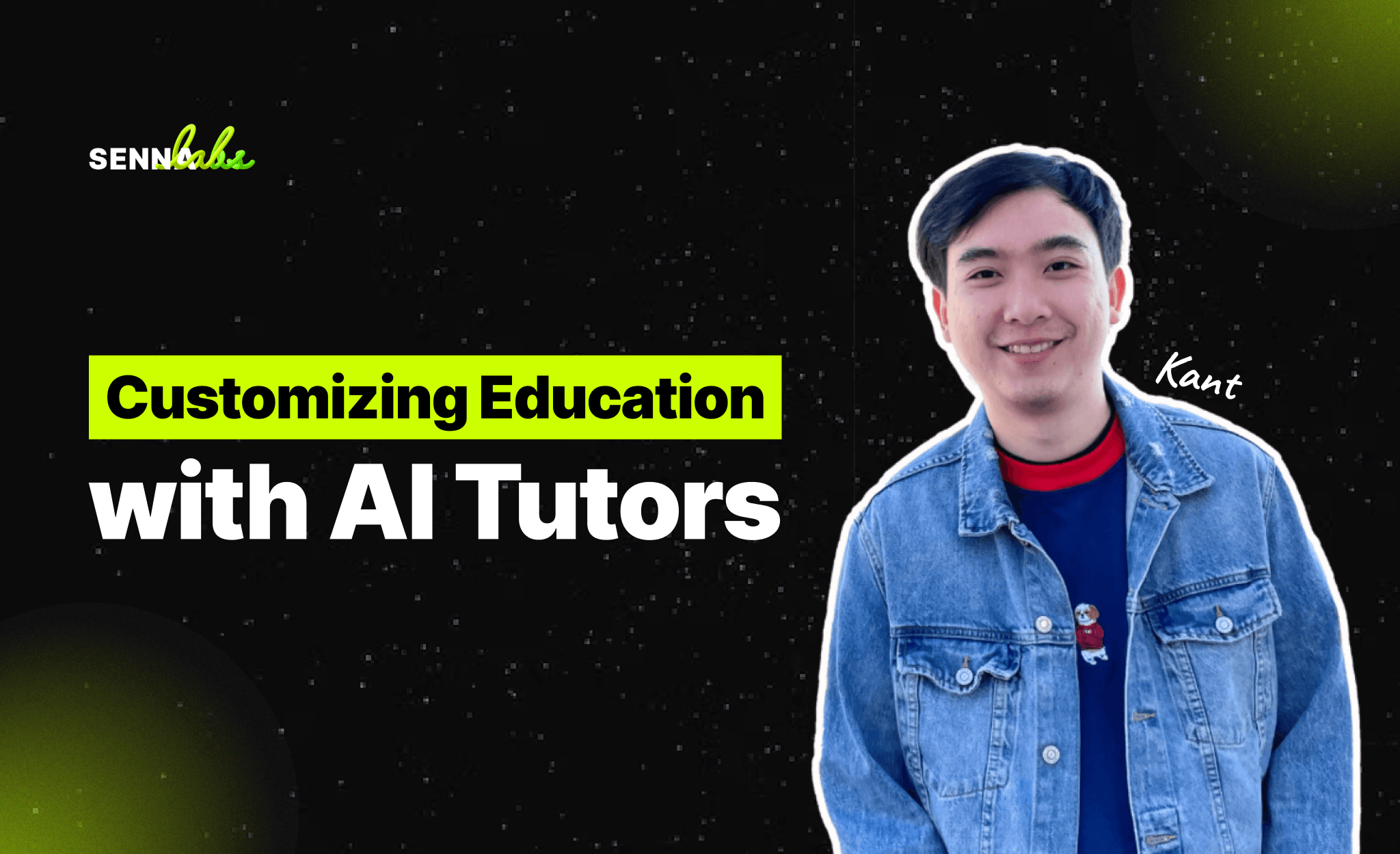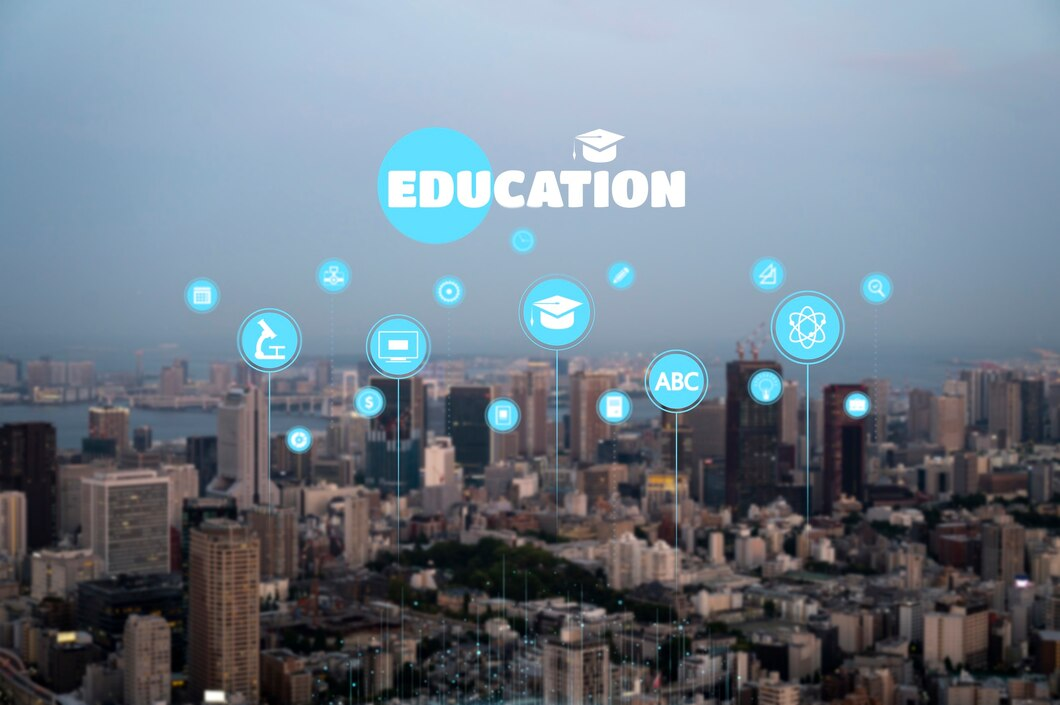Customizing Education with AI Tutors
Share

Education is at the heart of individual and societal growth, but traditional approaches often struggle to cater to the diverse needs and learning paces of students. Artificial intelligence (AI) is transforming the educational landscape by enabling adaptive learning platforms that personalize instruction. AI-powered tutors are revolutionizing how students learn by analyzing their progress and tailoring content to address individual strengths and weaknesses.
This article explores the role of AI tutors in customizing education, focusing on their application in adaptive learning platforms.

The Role of AI in Education Personalization
AI in education leverages machine learning algorithms, natural language processing (NLP), and real-time analytics to create dynamic learning experiences. Unlike conventional teaching methods that apply uniform lessons to all students, AI-powered platforms assess each learner’s unique abilities, preferences, and challenges. By delivering content tailored to individual needs, these systems enhance understanding, retention, and overall academic performance.
Key functionalities of AI tutors include:
-
Assessment and Feedback: Evaluating a student’s current knowledge level and providing targeted feedback.
-
Content Adaptation: Adjusting lesson difficulty and style based on a student’s progress and learning preferences.
-
Engagement Enhancement: Keeping learners motivated through interactive and gamified elements.
Use Case: Adaptive Learning Platforms
Adaptive learning platforms are AI-driven tools that provide customized educational experiences. Here’s how they operate and benefit learners:
-
Identifying Weak Areas:
AI platforms continuously assess a student’s performance through quizzes, exercises, and interactive activities. For instance, if a learner struggles with fractions in mathematics, the system might prioritize additional exercises and visual aids to strengthen this area. -
Real-Time Adjustments:
Lessons are dynamically adjusted based on a student’s pace and understanding. For example, if a student quickly masters a concept, the platform may skip repetitive exercises and introduce more challenging material. -
Personalized Learning Paths:
AI tutors create individualized study plans by considering factors such as a student’s learning style, goals, and preferred formats (e.g., videos, text, or interactive simulations). -
Gamification and Motivation:
Many AI platforms incorporate gamified elements, such as badges, progress tracking, and rewards, to maintain engagement and motivate students to achieve their academic goals. -
Supporting Diverse Learners:
AI tutors cater to students with different needs, including those with learning disabilities or language barriers. For example, a platform might provide text-to-speech functionality for visually impaired learners or translate content into multiple languages.
Benefits of AI Tutors in Education
AI-powered tutors offer numerous advantages for students, educators, and institutions:
-
Personalized Learning Experiences:
By tailoring content to individual needs, AI tutors ensure that each student receives the most effective instruction. -
Enhanced Retention and Understanding:
Targeted exercises and real-time feedback help students grasp concepts more effectively, improving knowledge retention. -
Scalability:
AI platforms can support large numbers of students simultaneously, making quality education accessible to a broader audience. -
Improved Engagement:
Interactive and gamified elements keep students motivated and encourage consistent participation. -
Data-Driven Insights:
Educators gain valuable insights into student performance and progress, enabling them to provide better support and guidance. -
Accessibility and Flexibility:
AI tutors allow students to learn at their own pace and on their own schedule, making education more inclusive and adaptable to different lifestyles.
Challenges in Implementing AI Tutors
Despite their benefits, implementing AI-powered tutors comes with challenges:
-
Data Privacy Concerns:
Collecting and storing student data raises privacy issues. Platforms must comply with regulations like GDPR and FERPA to protect sensitive information. -
High Initial Costs:
Developing and deploying AI-based educational tools can be expensive, potentially limiting their adoption by smaller institutions. -
Technical Barriers:
Reliable internet access and compatible devices are essential for using AI platforms, which may be unavailable to some learners. -
Algorithm Bias:
AI systems may inadvertently reflect biases present in training data, affecting the fairness and inclusivity of recommendations. -
Dependence on Technology:
Over-reliance on AI tutors may reduce opportunities for interpersonal interactions and critical thinking if not balanced with human instruction.
Best Practices for Implementing AI Tutors
To maximize the effectiveness of AI tutors in education, consider the following best practices:
-
Ensure Data Security:
Use robust encryption and secure storage to protect student data and maintain trust. -
Blend Human and AI Instruction:
Combine AI tutors with traditional teaching methods to foster interpersonal skills and critical thinking. -
Customize for Local Contexts:
Adapt AI systems to align with regional curricula, cultural norms, and language requirements. -
Provide Training for Educators:
Equip teachers with the knowledge to integrate AI tools into their classrooms effectively and interpret the insights provided. -
Focus on Accessibility:
Design platforms to accommodate learners with diverse needs, including those with disabilities or limited resources.
The Future of AI in Education
The potential of AI in education is vast, with continuous advancements expected to enhance personalization and accessibility. Future developments may include AI-powered virtual reality (VR) environments that immerse students in experiential learning or emotional intelligence features that adapt teaching styles based on a student’s mood.
As AI becomes more intuitive, it will not only support academic learning but also assist in developing soft skills like teamwork and problem-solving. Moreover, integration with global education networks will enable students worldwide to access top-tier learning resources.
Conclusion
AI tutors are revolutionizing education by delivering adaptive, personalized learning experiences that cater to individual student needs. Through dynamic content adjustments, targeted exercises, and interactive elements, these systems enhance understanding and engagement, paving the way for improved academic outcomes. While challenges remain, thoughtful implementation and adherence to best practices can help unlock the full potential of AI in education, ensuring that learning is more inclusive, effective, and accessible for all.

Share

Keep me postedto follow product news, latest in technology, solutions, and updates
Related articles
Explore all


